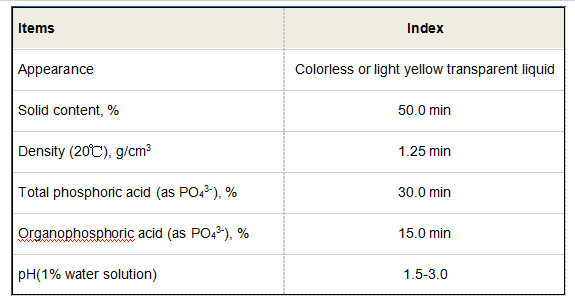Exploring the Benefits and Uses of Disodium Salt in Food and Industry
Understanding Disodium Salt A Deep Dive into Its Uses and Applications
Disodium salts are chemical compounds that consist of two sodium (Na) ions bound to an anion, often derived from an acid. These salts play a crucial role in various industries, including food, pharmaceuticals, and cosmetics. This article aims to provide a comprehensive overview of disodium salts, focusing on their chemical properties, applications, and benefits.
Chemical Composition and Properties
A disodium salt typically arises from a diprotic acid, which can donate two protons (H⁺ ions) in a chemical reaction. The presence of two sodium ions gives these salts their distinct characteristics. For instance, the most common disodium salt is disodium phosphate (Na₂HPO₄), which is formed from phosphoric acid. The formula illustrates how two sodium ions balance the charge from the phosphate ion. Disodium salts often exhibit high solubility in water, making them ideal for various applications.
Uses in the Food Industry
In the food industry, disodium salts serve multiple purposes. They are commonly used as food additives to enhance flavor and preserve quality. For example, disodium inosinate (IMP) is a flavor enhancer often found in savory processed foods, snacks, and sauces. It works synergistically with monosodium glutamate (MSG) to boost umami flavor, making dishes taste richer and more satisfying.
Beyond flavor enhancement, disodium salts such as disodium EDTA (ethylenediaminetetraacetic acid) are utilized as preservatives. Disodium EDTA acts by binding to metal ions, thus preventing them from catalyzing spoilage reactions, ensuring a longer shelf life for food products. Moreover, disodium salts can stabilize emulsions, making them crucial in salad dressings and sauces.
Pharmaceutical Applications
disodium salt

Disodium salts also find extensive applications in the pharmaceutical industry. They are often used in the formulation of medications due to their ability to enhance solubility and stability. Disodium phosphate, for instance, is utilized in oral rehydration solutions to replenish electrolytes in individuals suffering from dehydration. Its balanced ionic composition is effective in restoring the necessary fluid balance in the body.
Additionally, disodium salts are employed as buffering agents in drug formulations, helping to maintain a stable pH and enhance the bioavailability of active ingredients. This property is particularly important in the development of injectables and other sterile products, where pH stability is crucial for patient safety and drug efficacy.
Cosmetic and Personal Care Products
The cosmetic industry also leverages the benefits of disodium salts. Many skincare and beauty products include disodium salts for their moisturizing properties. For example, disodium EDTA is frequently used in lotions and creams to enhance texture and stability. Its ability to bind with metal ions helps prevent deterioration caused by oxidative stress, thereby extending the product's shelf life.
Furthermore, disodium salts are included in shampoos and conditioners to improve hair manageability and shine. By forming a protective film on the hair shaft, they help retain moisture and reduce frizz, contributing to overall hair health.
Conclusion
Disodium salts are versatile compounds with significant applications across multiple industries. Their unique properties allow them to enhance flavor and preserve food, stabilize pharmaceuticals, and improve cosmetic formulations. Understanding the role of disodium salts is essential for comprehending their impact on our daily lives, from the food we consume to the products we use for personal care. As research and technology advance, the potential applications of disodium salts are likely to expand, highlighting their importance in modern science and industry.
-
LK-319 Special Scale And Corrosion Inhibitor For Steel Plants: Advanced Solutions for Industrial Water SystemsNewsAug.22,2025
-
Flocculant Water Treatment: Essential Chemical Solutions for Purification ProcessesNewsAug.22,2025
-
Isothiazolinones: Versatile Microbial Control Agents for Industrial and Consumer ApplicationsNewsAug.22,2025
-
Scale Inhibitor: Key Solutions for Water System Scale PreventionNewsAug.22,2025
-
Organophosphonates: Versatile Scale Inhibitors for Industrial Water SystemsNewsAug.22,2025
-
Scale and Corrosion Inhibitor: Essential Chemical Solutions for Water System MaintenanceNewsAug.22,2025





